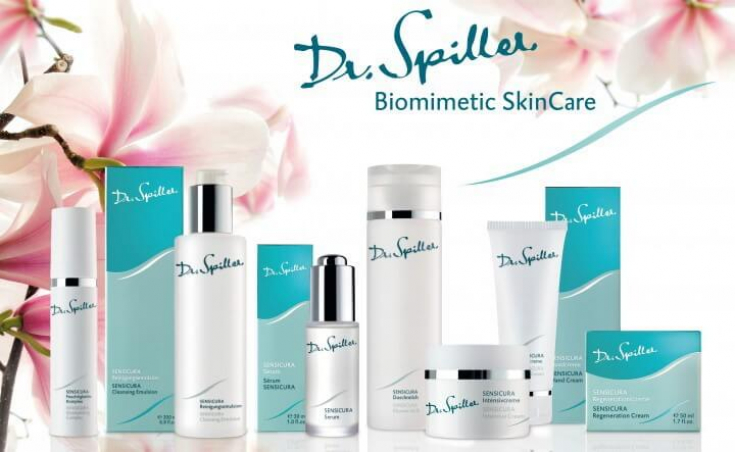Patients who visit a cosmetologist with couperosis often do not suspect that this pathology is a symptom of rosacea – a chronic disease characterized by persistent redness, swelling, dilation of small superficial vessels, the appearance of pustular or papulo-pustular rashes on the skin of the face. Choosing the right approach to deal with telangiectasia is critical to effectively managing the problem. In the case of rosacea, the lack of adequate treatment can lead not only to relapses, but also to the progression of the disease. Home Care – an important step in the prevention of the onset and exacerbation of couperose in rosacea, about which in an interview for estet-portal.com told Daria Miguleva – dermatologist, trichologist, esthetician-cosmetologist.
- How relevant is rosacea today
- What triggers can provoke the development or exacerbation of couperosis in rosacea
- What methods used to diagnose and treat rosacea
- What role does home care play in the treatment of couperosis in rosaceaa
How relevant is the problem of rosacea today

Many patients who go to the doctor complaining of rosacea are unaware of the initial stage of rosacea. This dermatosis is characterized by a certain stability. So, at the zero stage of the disease, skin hypersensitivity and a violation of the integrity of the epidermal barrier, in particular, a lack of lipids – the so-called cementum of the stratum corneum of the epidermis. The proximity of blood vessels to the surface of the skin, due to genetics, the thinness of the skin, the violation of the outflow in the area of the facial vein – reasons why the skin of rosacea patients reacts to certain factors.
The first stage of the disease is temporary skin erythema that occurs in response to certain triggers and can persist for an hour or longer.
Follow us on Telegram!
For second stage rosacea is characterized by the manifestation of rosacea (telangiectasia, vascular network), associated with impaired blood microcirculation, expansion and loss of elasticity of the walls of small vessels of sensitive skin.
Many patients who go to the doctor with complaints of rosacea are unaware of the initial stage of rosacea.
The third stage is characterized by the appearance of papulopustular elements on the skin.
Phymatous changes in the area of the nose, forehead or chin are observed in the fourth stage of rosacea.
Ophthalmic rosacea affects the eye areaz.
What triggers can provoke the development or exacerbation of couperosis in rosacea
can be:
ultraviolet radiation (therefore, permanent photoprotection is necessary for patients with rosacea in any season);- spicy, salty, sour or hot foods;
- smoking;
- alcohol;
- temperature differences.
- As for the
, these include, among other things, genetic predisposition and impaired outflow of the facial vein. As a result of lymphovenous stagnation, small capillaries on the surface of the skin overflow and expand. When this process becomes chronic, the vascular walls lose their elasticity and rosacea remains constanto. What methods are used to diagnose and treat rosacea
The most important stage –
Collecting anamnesisof the patient. It is important to establish at what point the hypersensitivity occurred and to which triggers the patient's skin reacts. It is also necessary to carry out examination of the skin and dermatoscopy, which allows identifying inflammation of the vascular wall and primary rashes in rosacea.
Hyaluronidase Enzyme – first assistant cosmetologist Because this disease is characterized by hypersensitivity of the skin, the first step is to restore the
epidermal barrier. This can be done through the right home care:
gentle cleansing;- moisturizing;
- skin toning;
- recovery of epidermal lipids;
- strengthening of the vascular walls.
- At the stage of erythema and rosacea,
(azelaic peeling, mesotherapy, laser procedures) are used after the restoration of the epidermal barrier and the elimination of the problem of skin hypersensitivity. If this condition is not met, rosacea will recur after laser therapyb. What is the role of home care in the treatment of couperosis in rosacea
Properly selected home care can improve skin quality by about 50%, and therefore this stage is very important in the treatment of rosacea and rosacea.

(official distributor – company TOTIS) is specially designed for hypersensitive skin. Properly selected home care can improve skin quality by about 50%, and therefore this stage is very important in the treatment of rosacea and rosacea.
An important feature ofSensicura
products is not only the perfect combination of active ingredients that restore the protective barrier and stimulate skin renewal, but also the absence of fragrances, aggressive preservatives and other components that can provoke an undesirable reaction from the sensitive side. skin.
Solving all kinds of skin problems: a unique space for patients and beauticians
The products of this linecan be used to prepare the skin for and after aggressive cosmetic procedures to reduce and eliminate the following problems:
redness;- swelling;
- flaking;
- inflammation;
- couperose and rosacea;
- dry skin.
is effective because it contains the following ingredients:
- Vitamin F (linoleic acid) and Squalane
- - restore the epidermal barrier; Hyaluronic acid - retains water molecules and moisturizes;
- Panthenol and allantoin
- - soothe the skin, relieve redness, suppress inflammation; Vitamin E – antioxidant, protects the skin from oxidative damage, irritation.
- In addition to the base line of Sensicura, I prescribe Dr. Spiller (official distributor –
TOTIS), which are designed for sensitive skin with signs of rosacea. Anti-couperose ampoules and masks, which are used in professional care, actively protect and strengthen the walls of blood vessels, as well as improve skin microcirculation. For home use
ideal for:
anti-couperose cream with vitamin K; Vitamin P Anti-Cuperose Gel
- A revolutionary multifunctional treatment for all types of wounds at all stages of healing
These products eliminate signs of irritation, soothe and restore the skin, relieve puffiness, stimulate microcirculation and strengthen the walls of blood vessels.







Add a comment